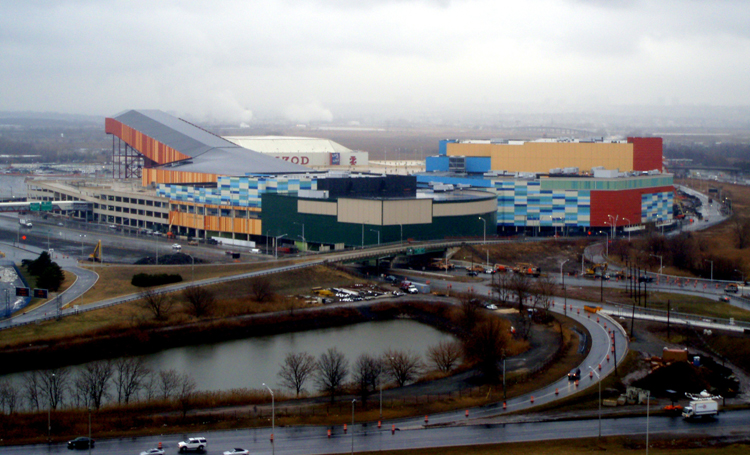Legislation was introduced by Senate President Steve Sweeney that calls for a November 2016 referendum that will decide whether or not two northern New Jersey counties will get new casinos. The location of the casinos would not be specified by the ballot question, and the deal would have to be approved by the state legislature prior to any referendum.
If the state constitution is amended by the voters and casinos are permitted beyond Atlantic City, it would be the biggest change to legalized gambling since 1978 when the seaside resort casinos began operating. East Rutherford’s American Dream Meadowlands, retail and entertainment complex, is expected to be a location for one of the two casinos. The other leading location is Jersey City, where a casino proposal worth upwards of $5 billion was proposed by footwear magnate Paul Fireman.
The substantial taxes that would be generated from the new casinos would provide a shot in the arm to the state’s economy, enabling it to compete with neighboring states. The head of Meadowlands Regional Chamber of Commerce, Jim Kirkos, said that a North Jersey casino would not cannibalize gambling in Atlantic City. Kirkos added, “Let’s face it. Atlantic City’s growth is no longer going to be in the gaming business,” and, “Atlantic City’s growth is by becoming a branded destination,” according to CBS Local.
However, the Casino Association of New Jersey said, “The Atlantic City market finally started to stabilize in 2015, after years of cannibalization by casinos in neighboring states. The last thing this community needs is more competition from within our own state’s borders.” The legislation includes a requirement that the two casinos are at least 75 miles from Atlantic City.
Much higher than the 8 percent tax rate the Atlantic City casinos pay, the tax rate the new casinos would have to pay is key to the expansion to northern New Jersey. In June plans were unveiled at the Meadowlands by Hard Rock International and the Meadowlands Racetrack for a $1 billion casino, and an offer of a 55 percent casino tax was made by Hard Rock.
A New Jersey Investment Fund would be the recipient of all tax revenue from the new casinos, per the proposal. To compensate for expected losses, 49 percent would go to Atlantic City for the first 15 years; the horse racing industry would receive 2 percent; and counties and municipalities would receive 49 percent for tax relief for the disabled and seniors. The amount sent to Atlantic City would decrease by 3 percent for the following 10 years, while the counties and municipalities would see an increase of 3 percent a year. After that time, 19 percent of the years new tax revenue would go to Atlantic City, with 79 percent going to counties and towns.
A rescue package that would have redirected at least $33.5 million in casino revenue to Atlantic City was vetoed by New Jersey Governor Chris Christie last month. Four of Atlantic City’s 12 casinos closed last year and the bills were intended to help stabilize the gambling hub.
Eight new casinos will open in the Northwest U.S. over the next year, and according to a Moody’s report published earlier in the month, in the coming years Atlantic City is expected to see additional casino closures. The casinos with the greatest risk of closing and are already in Chapter 11 bankruptcy are, Atlantic City’s Caesar’s, Ballys and the Trump Taj Mahal.



